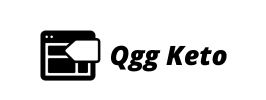Loans are like magic keys that unlock various doors in our financial journey. They help us achieve big dreams, like owning a home, getting an education, or starting a business. But to make smart choices, we need to understand the different types of loans out there. In this guide, we’ll take a deep dive into the world of loans, giving you the knowledge to confidently navigate through your borrowing options.
Mortgage Loans
Let’s start with mortgage loans, also known as home loans. These are the things you need if you want to buy a house. You pay them back every month for many years. There are different kinds, like fixed-rate mortgages, adjustable-rate mortgages (ARMs), and special ones backed by the government, like FHA and VA loans.
Personal Loans
Next up, we have personal loans. These are like the Swiss army knives of money—they can be used for almost anything, from paying off debt to covering unexpected expenses. Unlike mortgage loans, you don’t need to offer anything valuable as collateral. They usually come with fixed interest rates and set repayment terms, making it easier to plan your budget.
Auto Loans
Need a new set of wheels? That’s where auto loans come in. Whether it’s a shiny new car or a reliable used one, auto loans help you finance your ride. You pay them back over a few years with a fixed interest rate, and if you miss payments, they can take your car away.
Student Loans
For those pursuing higher education, student loans are a lifeline. These loans cover tuition fees, books, and living expenses while you’re in school. You can get them from the government or private lenders, and some even offer flexible repayment options and forgiveness programmes.
Business Loans
Entrepreneurs and small business owners, listen up! Business loans are here to help you turn your dreams into reality. Whether you need money to start a new venture or expand an existing one, there are various options available, like term loans, lines of credit, and SBA loans.
Payday Loans
Short on cash until your next paycheck? Enter payday loans. These quick-fix loans are designed to cover emergencies, but beware—they come with sky-high interest rates and fees, making them a pricey choice.
Secured Loans
Secured loans need something valuable, like your house or car, as a promise that you’ll pay them back. This makes them less risky for lenders, so they often come with lower interest rates.
Unsecured Loans
On the flip side, unsecured loans don’t need any collateral. They’re based solely on your creditworthiness. Because there’s no safety net for the lender, unsecured loans usually come with higher interest rates.
Fixed-rate Loans
Fixed-rate loans have a set interest rate that stays the same throughout the loan term. This makes it easy to predict how much you’ll pay each month. They’re great for people who like stability.
Variable-rate Loans
Unlike fixed-rate loans, variable-rate loans can change their interest rates over time. They might start low, but they could go up later, so be sure to weigh the risks before choosing one.

FAQs
Q1: What are the different types of loans?
A: The different types of loans include mortgage loans, personal loans, auto loans, student loans, business loans, payday loans, secured loans, unsecured loans, fixed-rate loans, and variable-rate loans.
Q2: How do mortgage loans work? A:
Mortgage loans work by allowing individuals to borrow money from a lender to purchase real estate. Borrowers repay the loan over time, typically through monthly payments that include both principal and interest.
Q3: What’s the difference between secured and unsecured loans?
A: Secured loans require collateral to secure the loan, while unsecured loans do not. Secured loans often offer lower interest rates but carry the risk of asset repossession in the event of default.
Q4: Are personal loans good for paying off debt?
A: Personal loans can be a good option for paying off debt because they often offer lower interest rates compared to credit cards. Consolidating high-interest debt into a single personal loan with a lower rate can help borrowers save money on interest and pay off debt more quickly.
Q5: Can I get a business loan if I have bad credit?
A: It may be challenging to secure a business loan with bad credit, but there are still options available. Alternative lenders and online lenders may be more flexible in their eligibility criteria, though borrowers may face higher interest rates and stricter terms.
Conclusion
Understanding the world of loans is like having a superpower—it empowers you to make smart financial decisions that align with your goals. Whether you’re buying a home, pursuing education, or chasing your entrepreneurial dreams, choosing the right loan can make all the difference. Armed with this knowledge, you can navigate the borrowing landscape with confidence and clarity.

